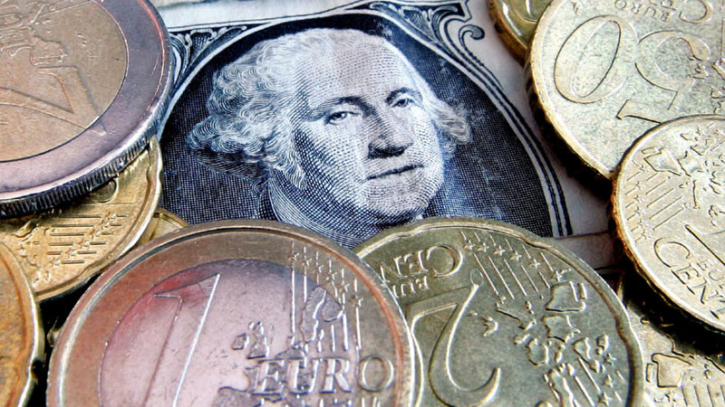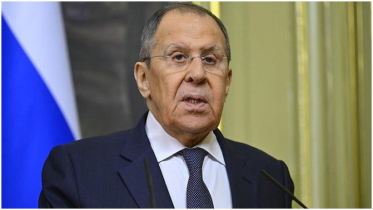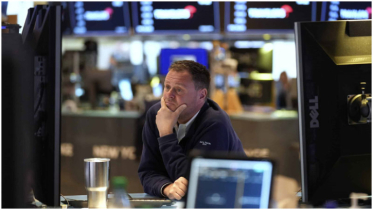Euro dips as markets brace for post-election gridlock in France

The euro slipped and French bond futures fell after French elections pointed to a hung parliament, casting fresh uncertainty over markets as a period of gridlock looms.
The euro dropped around 0.2 per cent in Asia trade to $1.0819 and long-term French bond futures dipped 20 ticks for an implied yield of 3.13 per cent.
Analysts said markets would likely be relieved that Marine Le Pen's far-right National Rally (RN) was forecast to come third, instead of winning the second-round ballot as had been predicted by opinion polls.
Yet investors also have concerns that the left's plans could unwind many of President Emmanuel Macron's pro-market reforms and believe a gridlock could end attempts to rein in France's debt, which stood at 110.6 per cent of gross domestic product in 2023.
"It looks like the anti-far right parties really got a lot of support," said Simon Harvey, head of FX analysis at Monex Europe.
"But fundamentally from a market perspective, there's no difference in terms of the outcome. There's really going to be a vacuum when it comes to France's legislative ability."
Cash trading in French bonds and stocks will begin on Monday morning in Europe. Moves in broader financial markets were modest.
The election leaves France's 577-seat assembly divided in three big groups - the left, centrists, and the far right - with hugely different platforms and no tradition at all of working together.
Polling agencies, which are generally accurate, forecast the left would get 184-198 seats, Macron's centrist alliance 160-169 and the RN and its allies 135-143. Constituency results were trickling in, with most due by the early hours of Monday.
JITTERS
Markets had tumbled when Macron in a shock move in June called for parliamentary elections following a trouncing at the hands of the RN in European Parliament elections.
French stocks, led by banks, dropped as investors worried about their holdings of government debt, new regulation and economic uncertainty in the euro zone's second biggest economy.
While the prospect of a far-right prime minister has dimmed and there has been some market rebound, the left has some expensive proposals and is also likely to shake up relations with Europe, leaving the outlook for French assets bumpy.
The leftist New Popular Front alliance, which wishes to govern, says its first moves would include a 10 per cent civil servant pay hike, providing free school lunches, supplies and transport while raising housing subsidies by 10 per cent.
"The economic programme of the left is in many ways much more problematic than that of the right, and while the left will not be able to govern on their own, the outlook for French public finances deteriorates further with these results," said Nordea's chief market analyst, Jan von Gerich.
The risk premium investors demand to hold the country's debt has touched its highest level since the euro zone crisis in 2012 as the country headed for the polls and even though there has been some recovery, a period of volatility is likely ahead.
"It's going to be very hard to actually go ahead and pass any policy and bring about any progressive reforms because each party's vote is split and no one has an absolute majority," said Aneeka Gupta, director of macroeconomic research at WisdomTree.
Yet she added: "I think the markets will be happy we're avoiding this extreme situation with the far right."
.png)




